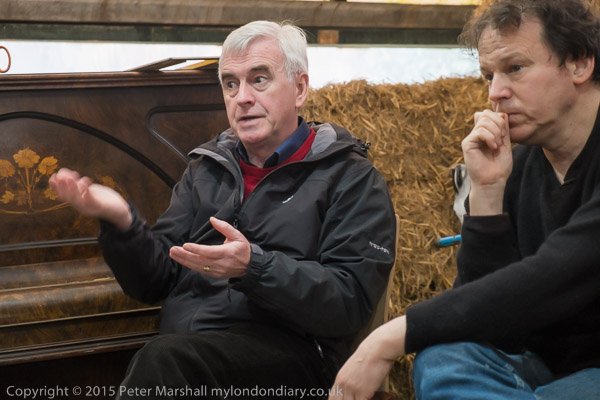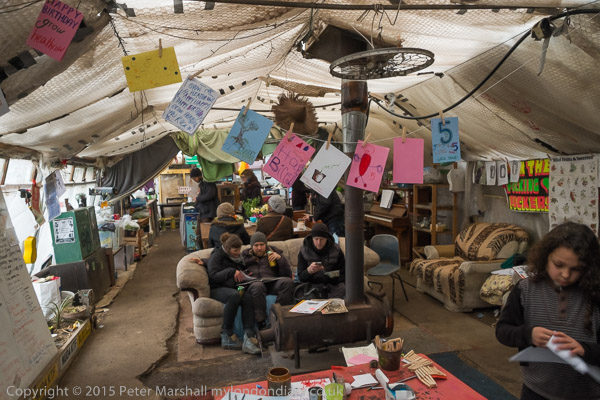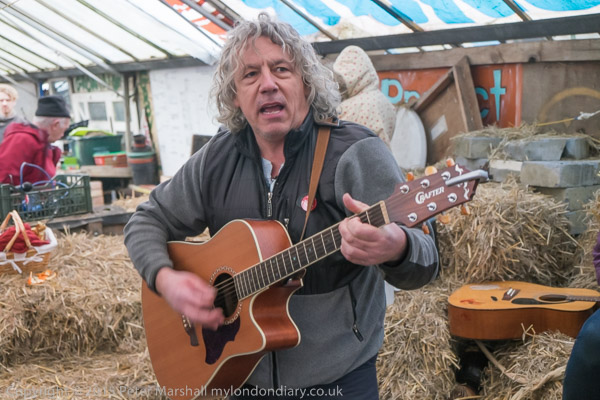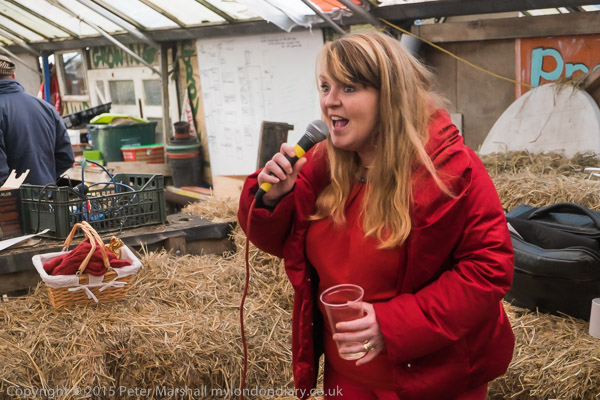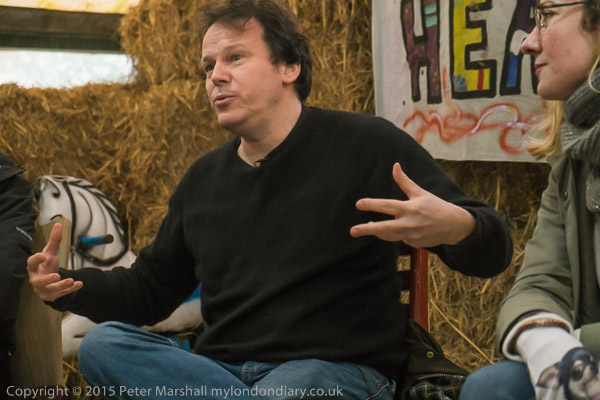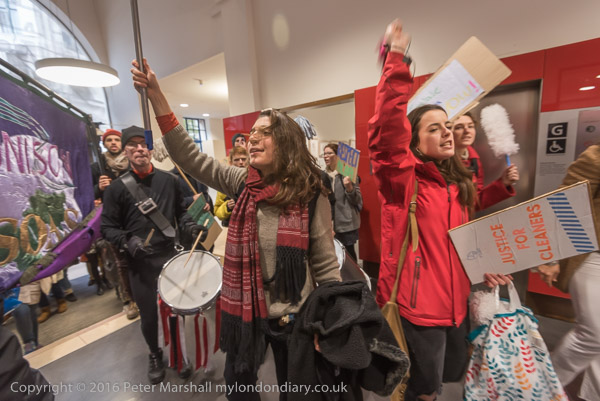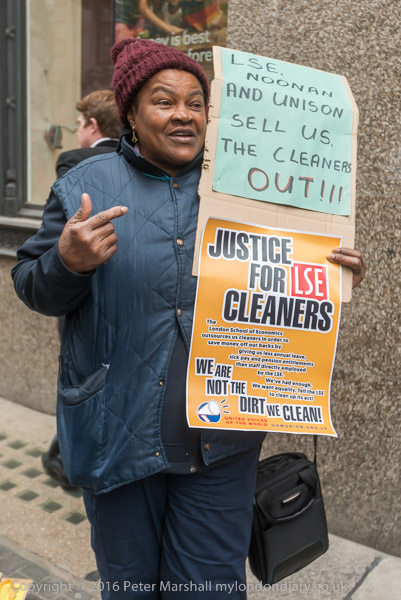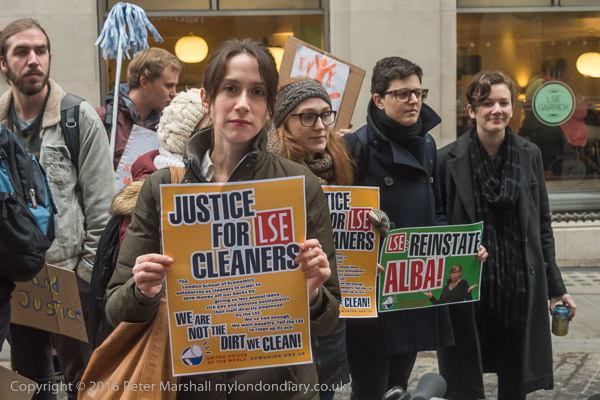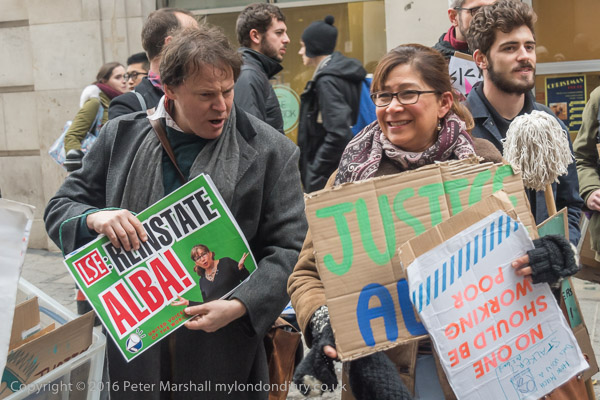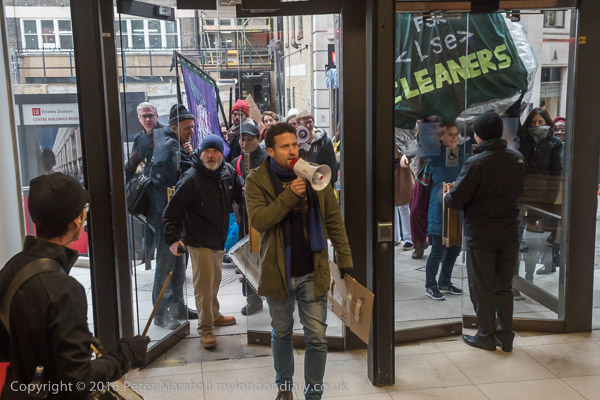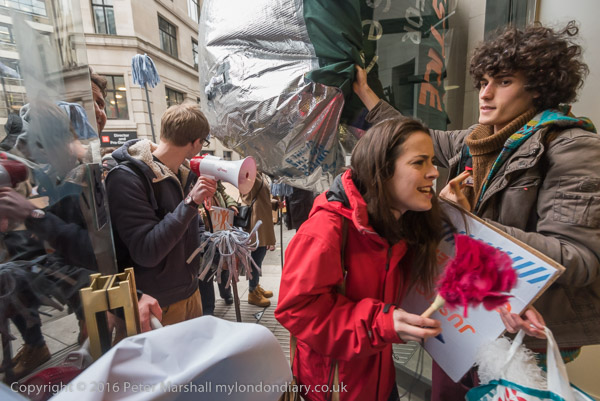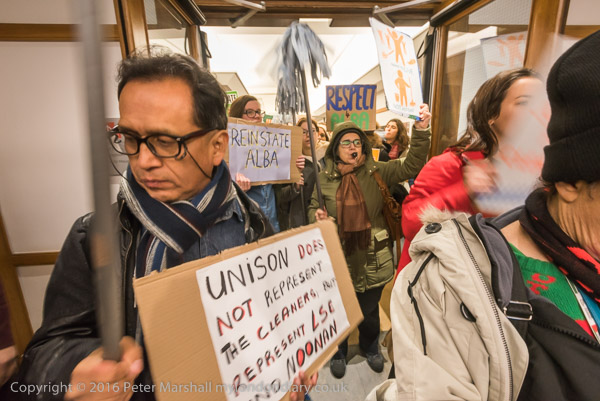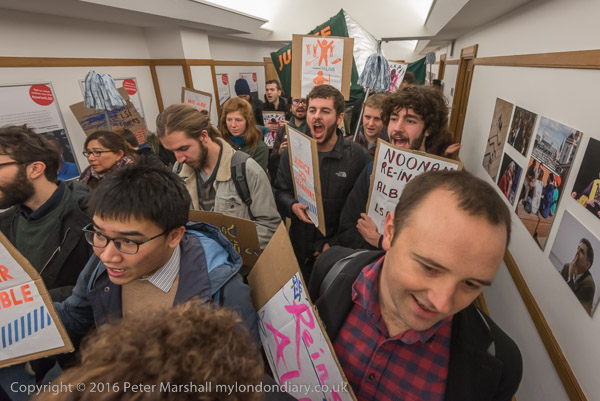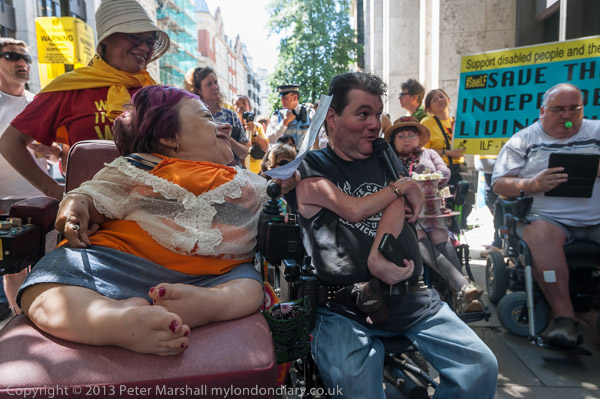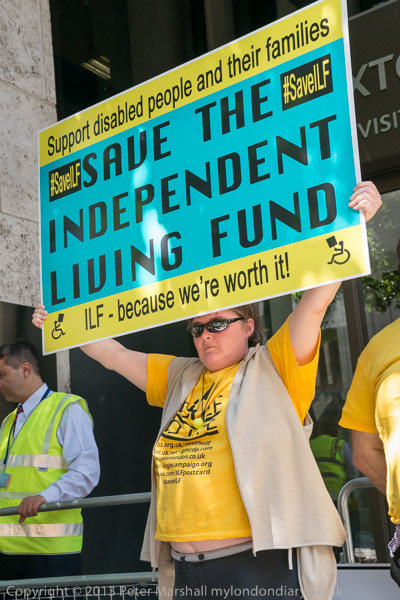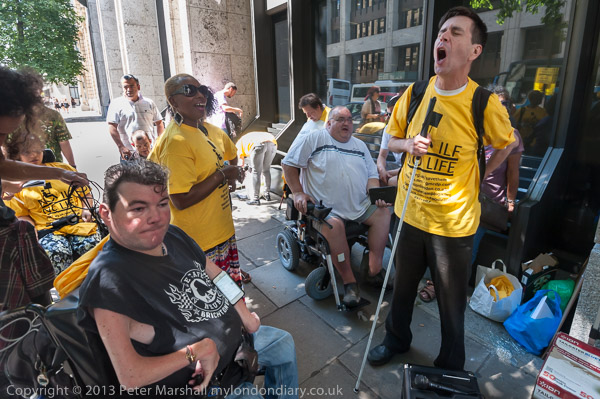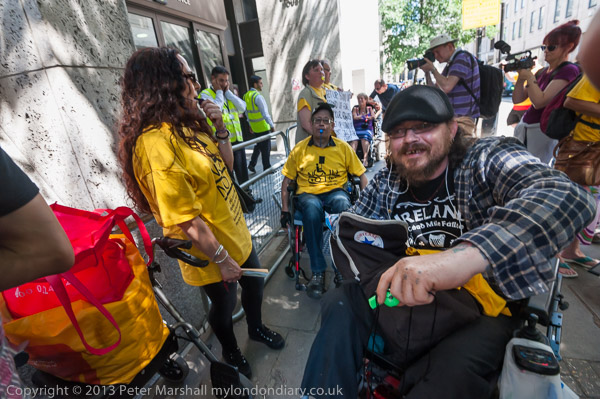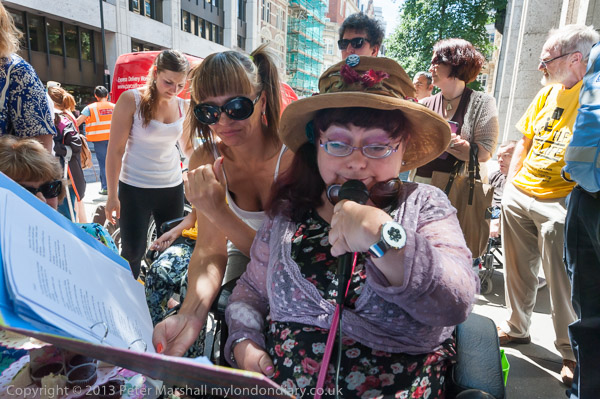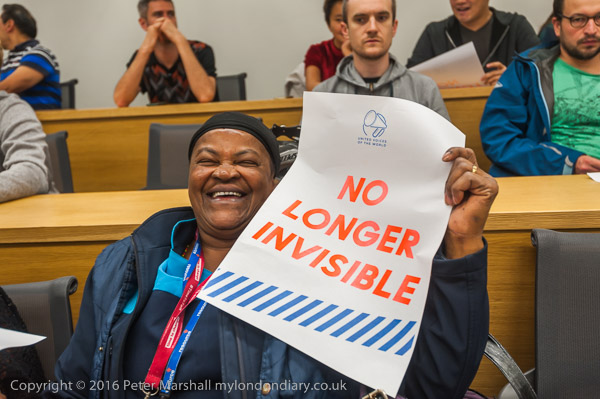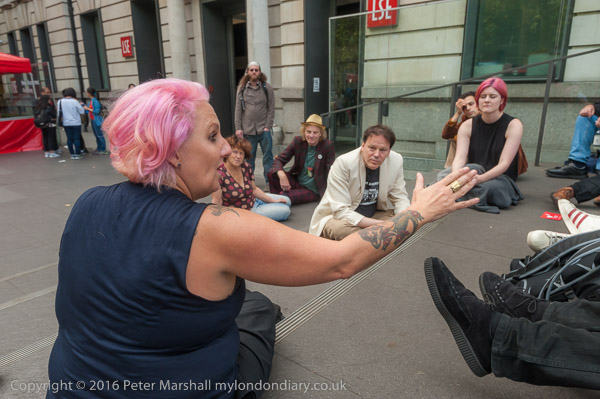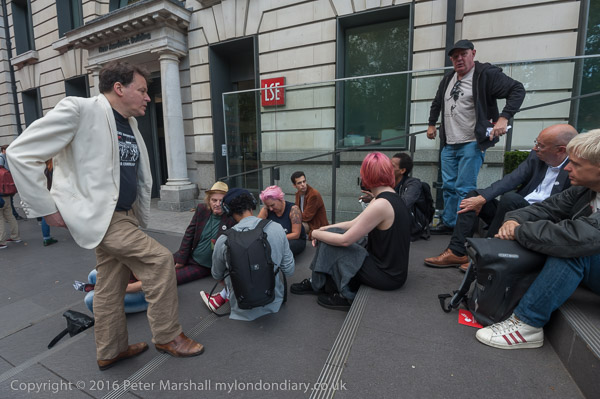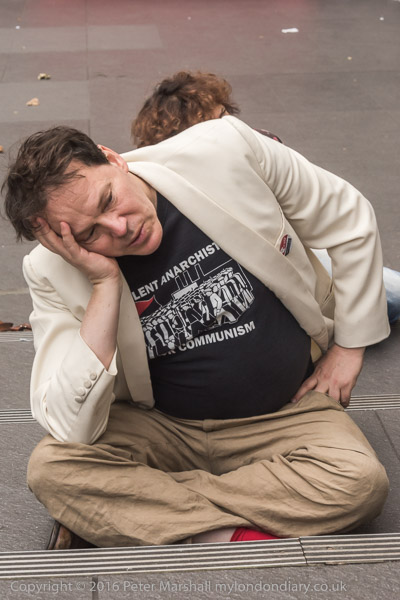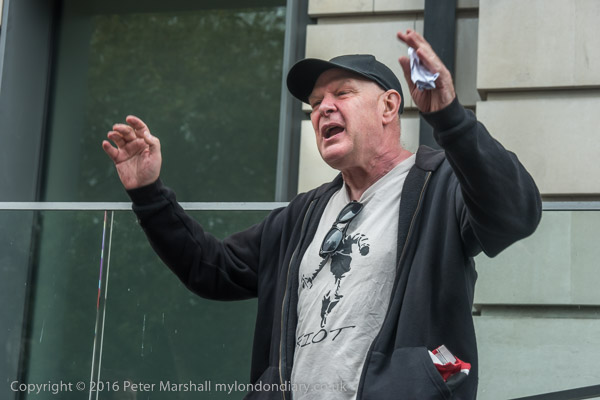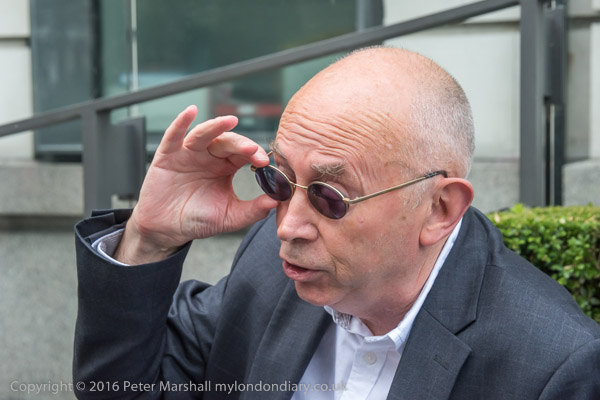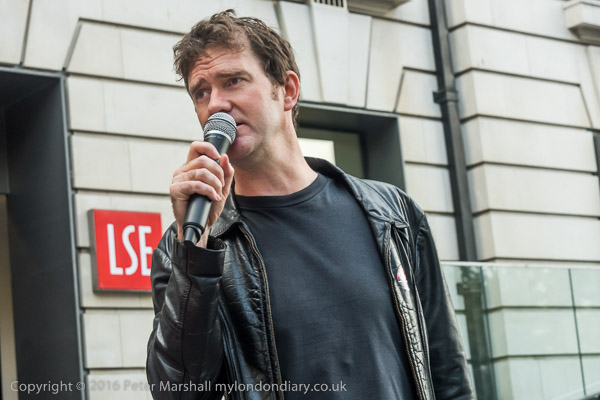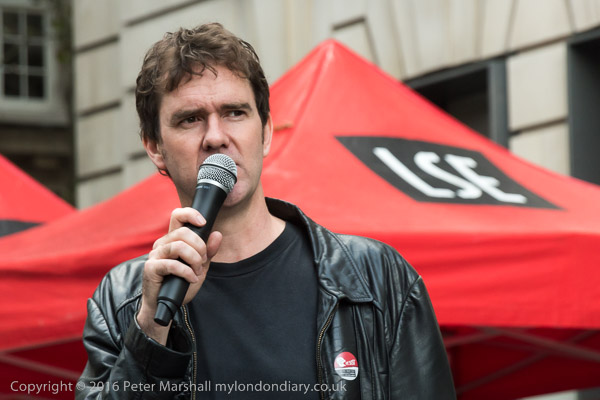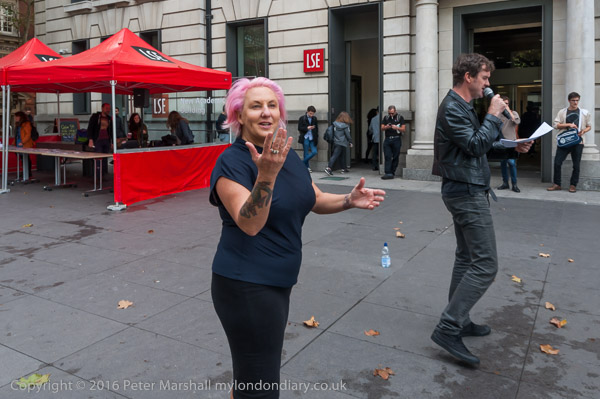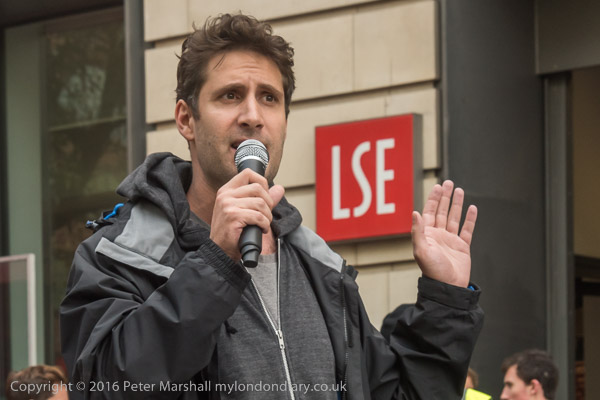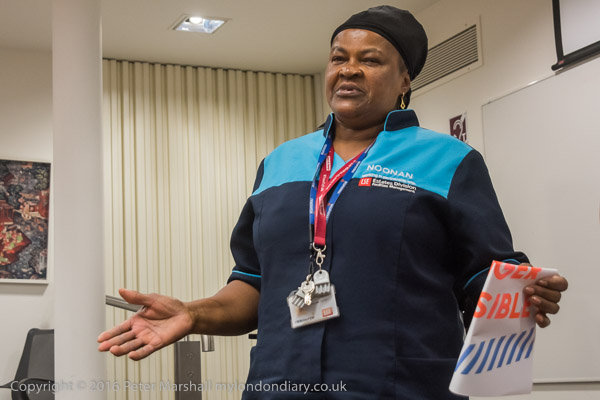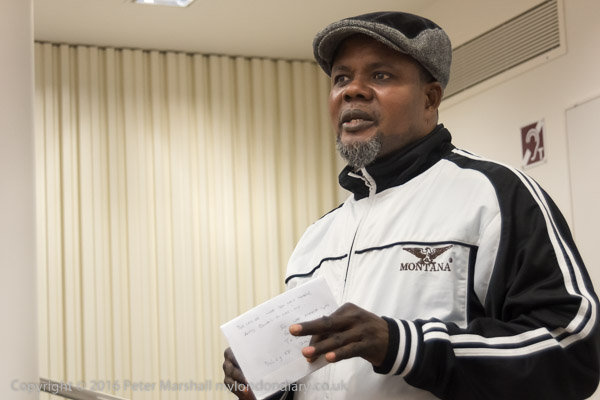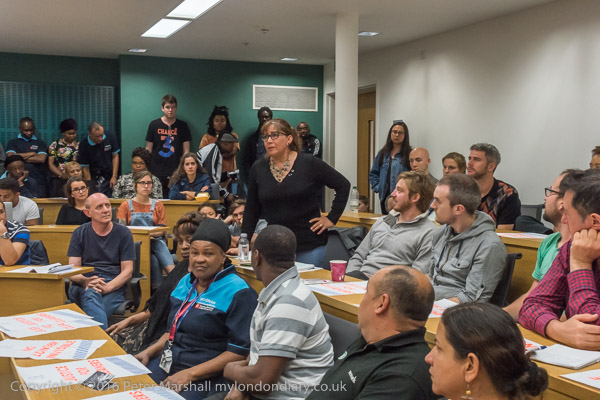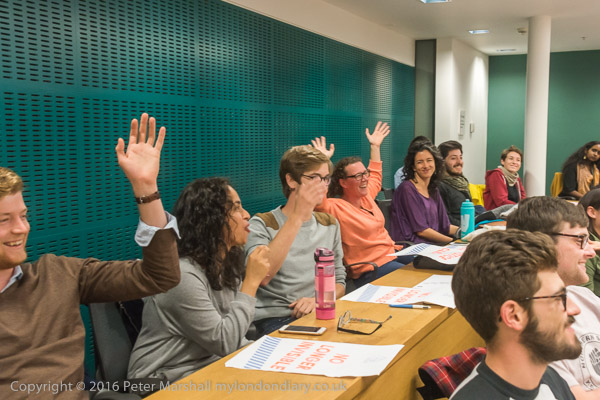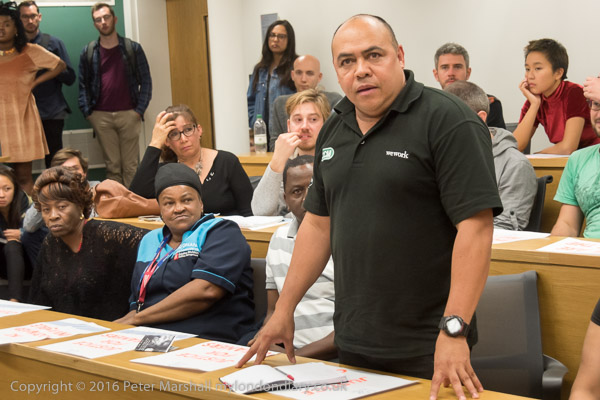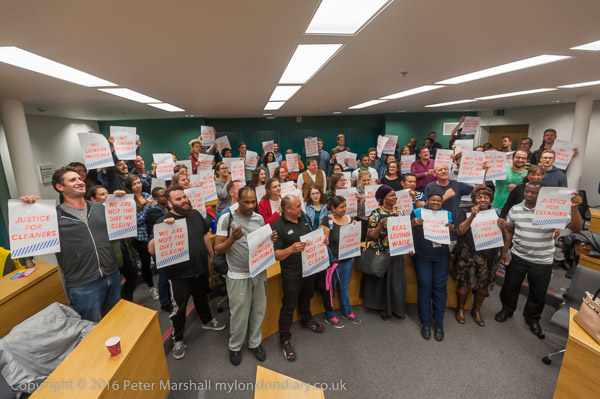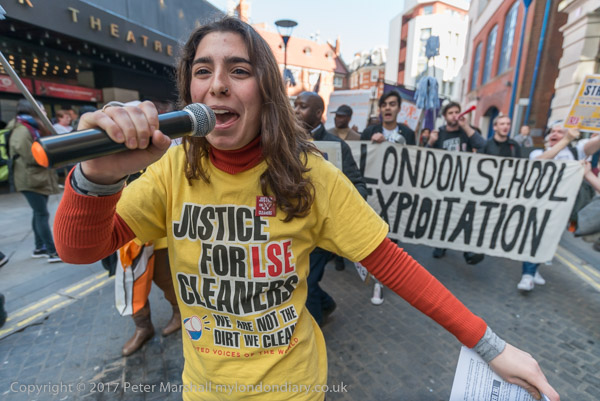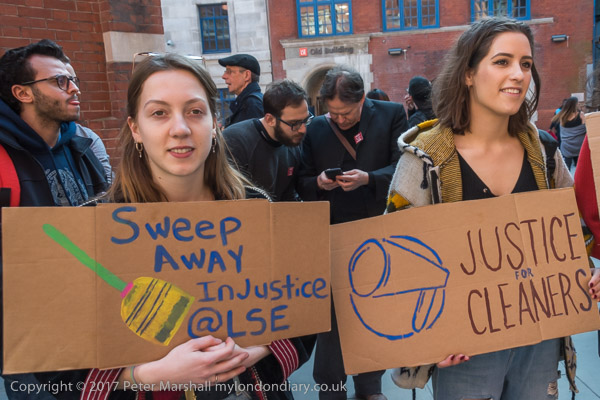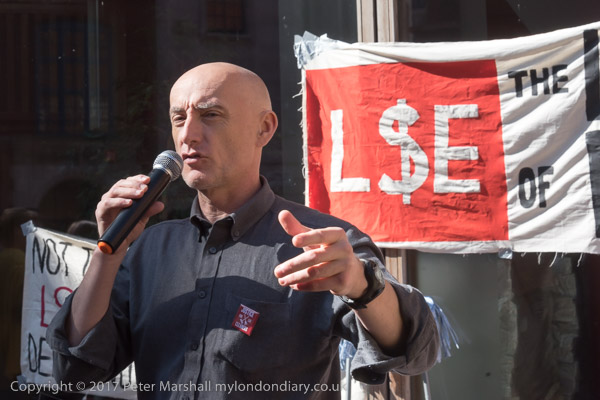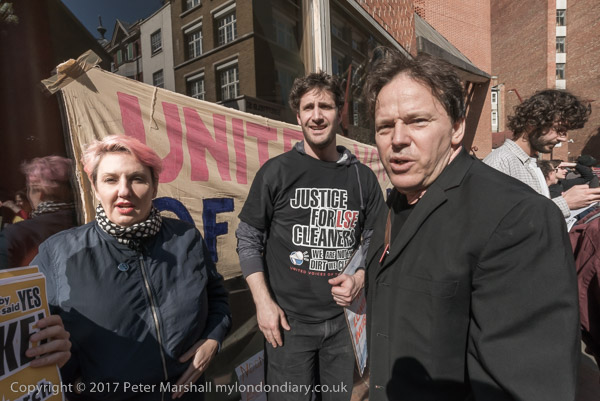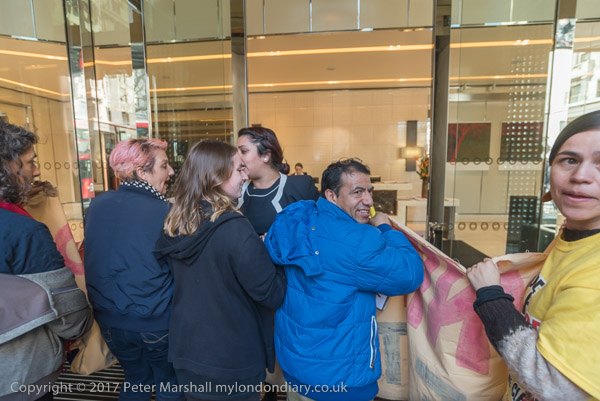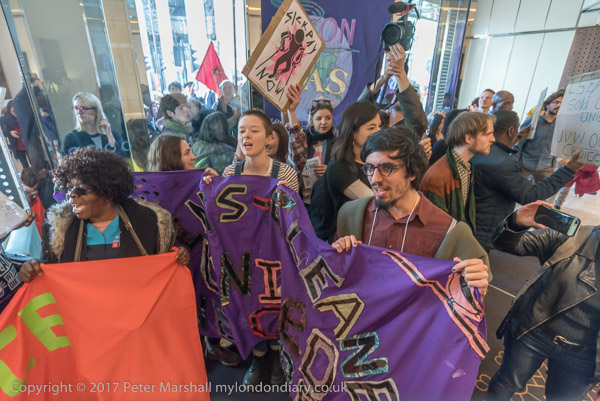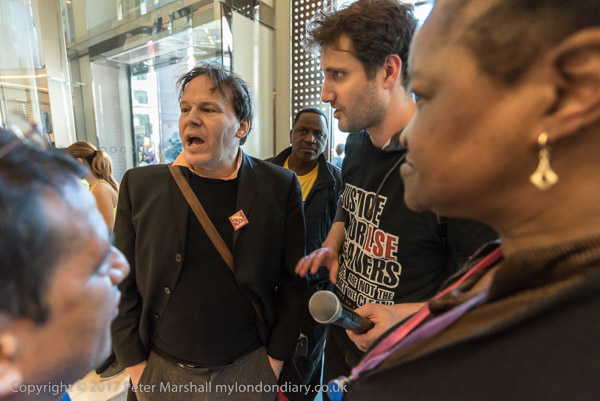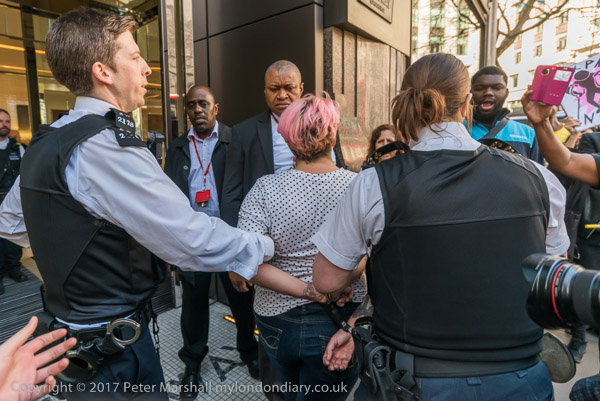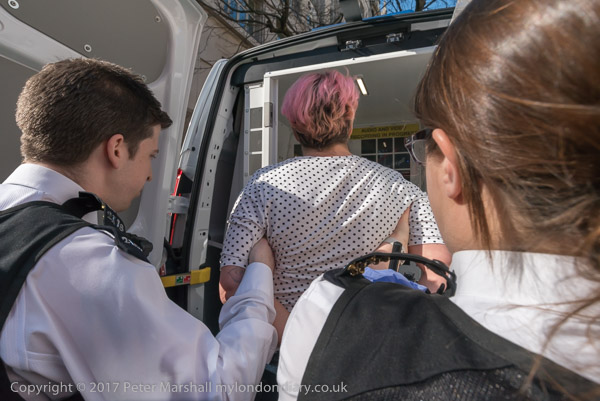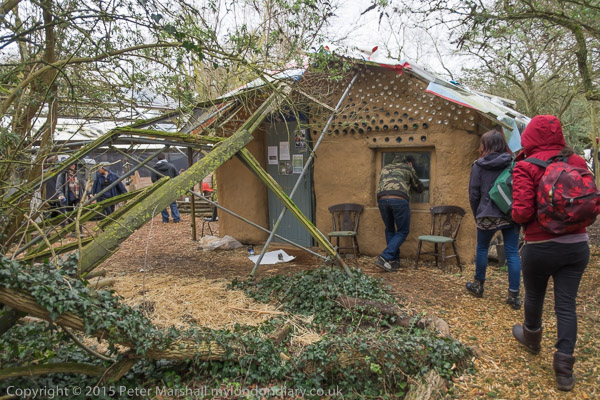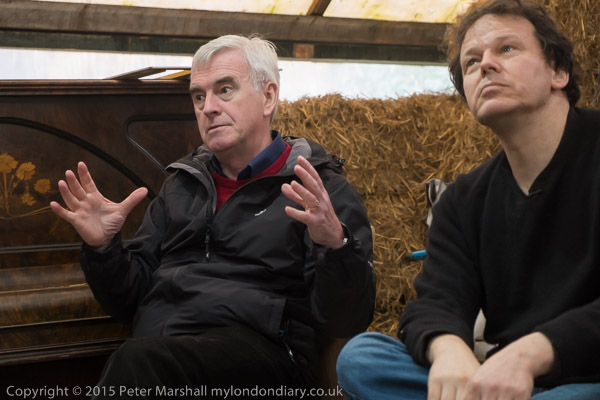LSE Cleaners Protest, Lisa Arrested: Wednesday 15th March 2017 was the first day of a two-day strike by cleaners at the LSE in support of their campaign demanding equal sick pay, holidays and pensions etc to similar workers directly employed by the LSE and an end to bullying and discrimination by their employer Noonan.

I had photographed the start of their campaign at a meeting led by their union, the United Voices of the World, as a part of the LSE’s 3-day ‘Resist’ Festival on 29th September 2016 and a number of protests at the LSE since then.

On 15th March the cleaners had a picket line since the early morning – cleaners start work while most of us are still in bed – and I joined them for a lunchtime rally. Their campaign had a great deal of support from students at the LSE and had a large banner ‘L$E: The London School of Exploitation‘.

Others who had come to support the cleaners included Grim Chip of Poets on the Picket Line and LSE academics Lisa McKenzie and David Graeber and a few from Class War. But there were passionate and effective speeches from a number of the cleaners, including Mildred Simpson, one of the LSE cleaners and others in the UVW.

At the end of the rally, the protesters marched through the campus and across Kingsway to the building which houses the LSE Estates Office where a large group walked into the foyer demanding to see the Estates Manager. Some were carrying mops and buckets to show their support for the cleaners.

Security came to talk with the protesters, though the protesters were making too much noise to hear them and the protest continued with a short speech from UVW General Secretary Petros Elia to explain when the foyer was being occupied.

Eventually the protesters sat down and waited, still making a lot of noise . People working in the building were still able to leave or enter the building unhindered walking past the protest – but would hear and read why the noisy protest was taking place.
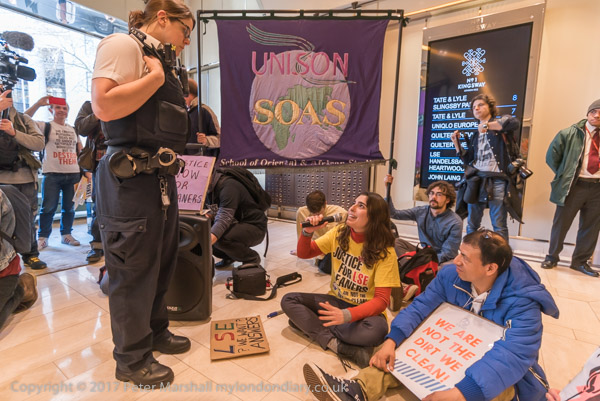
Eventually police arrived and talked with the building security and some of the protesters who soon began dancing in the foyer to music on the public address system the UVW had brought.
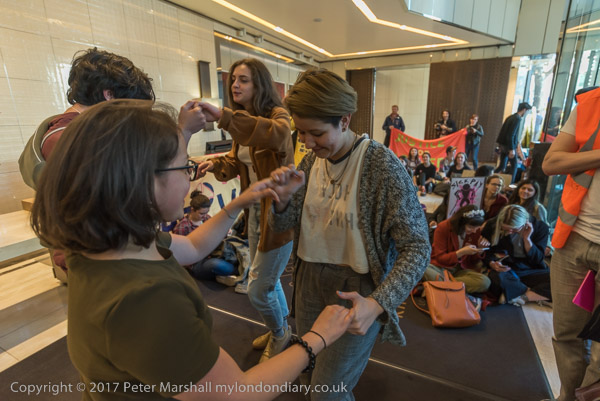
More police arrived and decided to stop people entering or leaving the offices. They talked with UVW General Secretary Petros Elia who told them it was a peaceful protest and they would leave after they had made their point to the LSE facilities manager – if the police could persuade him to talk to them.
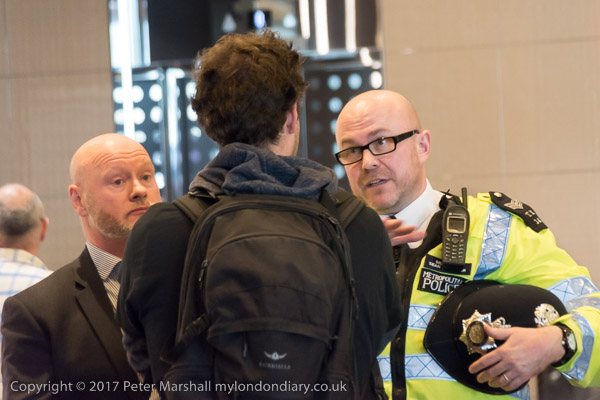
Eventually this talk did take place, though some way back from the foyer where we could only see them from a distance. The talk went on for around five minutes, and Petros then returned smiling to tell the protesters that the LSE who had until now been refusing to talk to the cleaners had agreed to a meeting.
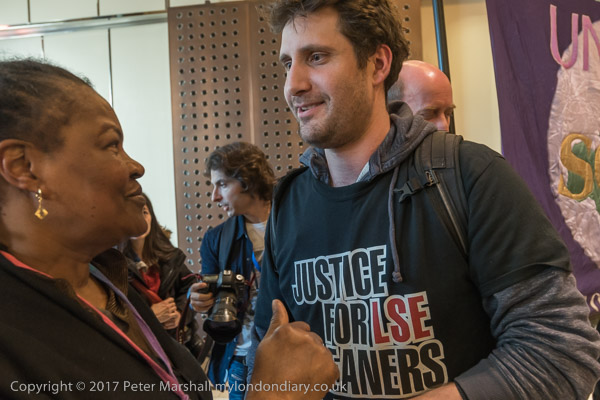
The protesters then walked out to join those who had been continuing to protest on the pavement outside, and they prepared to end the protest.
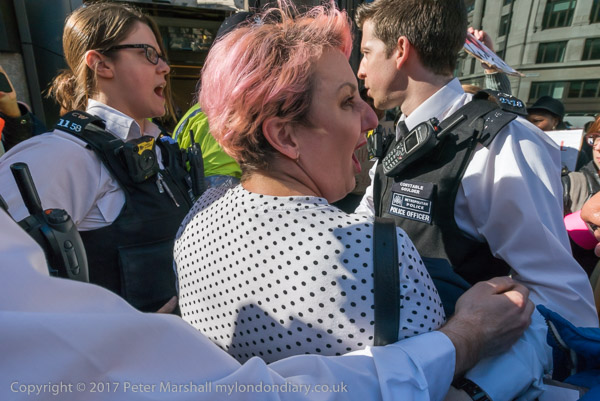
But unexpectedly police moved in and surrounded Lisa McKenzie telling her she was under arrest.
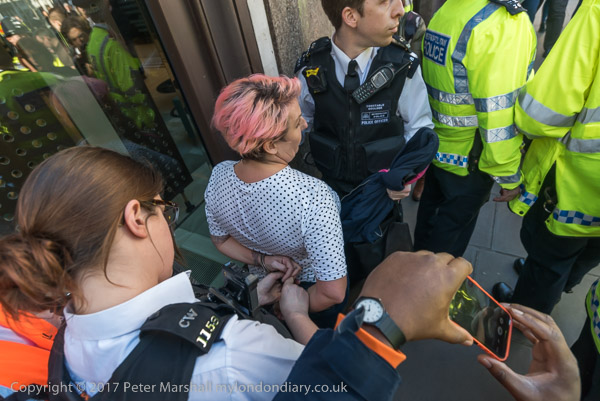
They pushed her roughly to the wall of the building and handcuffed her pushing away excessively roughly those who tried to stop the arrest and taking her to a waiting police van.
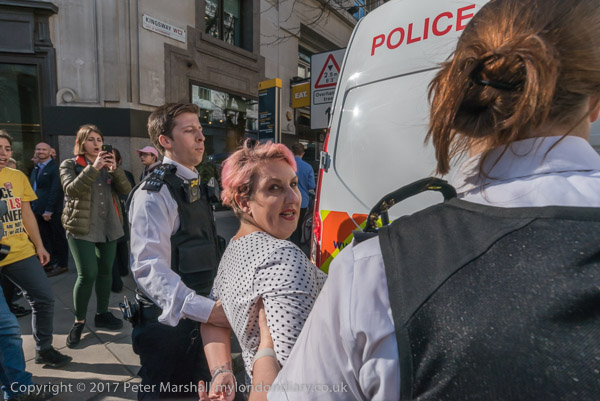
Apparently Lisa was being charged with assault on the receptionist when the protesters entered the building. I was close behind and neither I nor the other protesters saw any evidence of assault by her as she entered the offices holding one end of the banner with others.
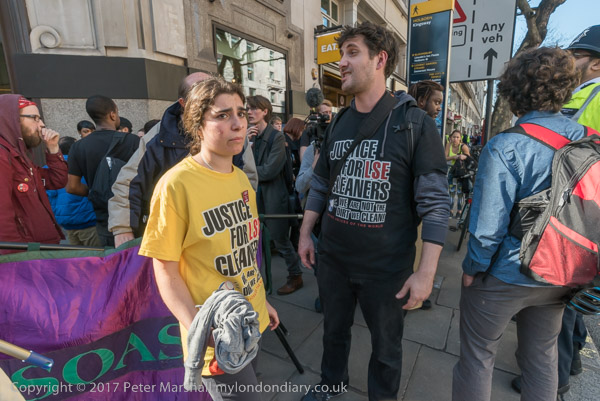
Everyone was shocked, both by the arrest and by the police violence. The fact that none of the others holding the banner were arrested strongly suggested that her arrest was politically motivated, probably due to pressure from the LSE for her support for the cleaners – she had organised the ‘Resist’ Festival where the cleaners campaign had been launched.
Lisa had previously been the subject of a clearly political arrest when she was wrongly charged with three offences at a protest in February 2015 while she was standing in the General Election against Iain Duncan Smith. Perhaps the police were still feeling aggrieved after failing signally to achieve a conviction. This time they were not stupid enough to take her to court.
Much more from Wednesday 15th March 2017 on My London Diary:
LSE cleaners strike and protest
Police arrest Lisa again
Flickr – Facebook – My London Diary – Hull Photos – Lea Valley – Paris
London’s Industrial Heritage – London Photos
All photographs on this page are copyright © Peter Marshall.
Contact me to buy prints or licence to reproduce.



